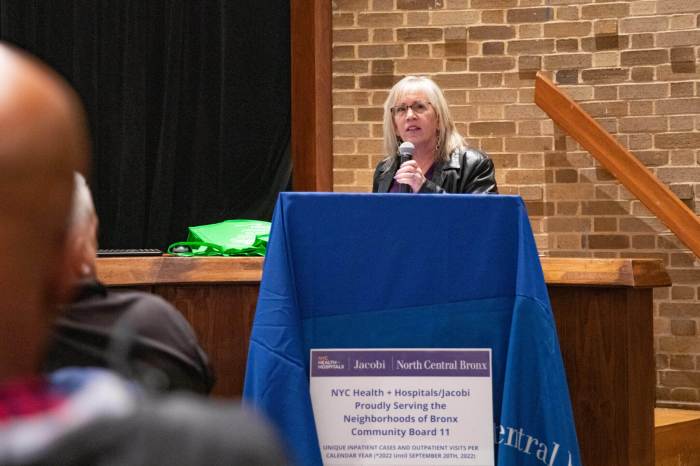Playwright Eduardo Machado explores the insularity of generations pissed off at Castro
Eduardo Machado has done it this time In “Kissing Fidel,” his 44th play—depending how you count—set in Miami in 1994, everybody has had sexual relations with everybody else, male, female, or otherwise, brothers with brothers, cousins with cousins, aunts with whomever, and everybody hates Fidel Castro with a passion.
Everybody except Oscar—“a novelist in his 40s”—who wants to go to Havana and kiss Castro. He’s kissed a lot of other men. But that isn’t what he means.
“I have this tape recorder in my head filled with their voices,” Oscar says of his crazy aunts, uncles, parents. “They never stop,” he says to his cousin Daniel. “Their stupidity, their greed, their libido. And what they lost. The island. Like a movie that’s always playing… with a million reels that never end… round and round it plays… and I write and write, run and run.”
“Well, I would like to meet Castro someday,” said Machado, a playwright in his early 50s who was spirited out of Cuba, willy-nilly, by his family, as a Peter Pan airlifted child, at age 8. “I don’t know about kissing him. I would like to meet and talk with him. I don’t mean forgive him—I don’t think there’s anything to forgive.”
Machado said this on a couch in the second-floor lobby of the Theater Row complex, where “Kissing Havana,” directed by John Garcé, is at the Kirk through October 23. “I once sat three rows behind him at the Havana Film Festival in 2000. As a kid of six, I met him, and Ché, and a couple of other ones, in Solimar, the fishing village where Hemingway hung out and I grew up. This must have been 1959.
“That was before Castro won the revolution and went to meet Eisenhower, and they [Ike’s people] told him: ‘You’re a punk, go fuck yourself.’ And was also before my grandfather, my mother’s father, Oscar Hernandez, who had liked Fidel, turned against him because the next thing Castro did was nationalize transportation, including my grandfather’s bus company.”
Machado, who is a person of some weight, dramatically, intellectually, and otherwise, gave a small smile of gratitude as he said, “Both my grandmothers are alive, one’s 99, the other’s 101, one lives in California, the other lives in Miami, and they’re still kicking, both mentally and physically.”
Their grandson last year added the duties of artistic director of INTAR, the Hispanic theater company, to those as head of the Columbia University Graduate Playwriting Department. When the University of Miami set about collecting all his stuff, he “actually sat down and counted,” and it came out as 44 plays to date, “around 30 long and 14 short,” notably including such beautiful pieces as “Cuba and the Night,” “Havana Is Waiting,” and “The Cook.”
Though it’s just reached the boards, “Kissing Fidel” isn’t really No. 44, because it was first written back in 1997.
“Then I completely rewrote it, last December, and got rid of five characters,” Machado explained. “Karen Kondazian [the actress who plays Aunt Miriam] was very interested in doing it in Los Angeles. I said, ‘Okay, but I don’t like some things in it,’ so I started rewriting, and as I rewrote it came to life for me. So here’s a new rule: You should put plays away for four [or more] years.”
The Los Angeles production has not yet happened.
The people in the play are members of his own family, by and large, more or less, under different names. Yes, they are all, in real life—including the formidable “Aunt Miriam”—still alive.
“I think they love me. I think they realize it’s given them a place in literature,” the playwright said. “Have they disowned me? No. I think that after 26 years they have come to see that the characters in my plays are obviously not completely them. I didn’t sleep with my aunt,” noted Machado, who has slept with a number of other people
YOLANDA [another, slightly younger aunt in “Kissing Fidel”]: Are you going to marry again, Oscar?
OSCAR: No.
YOLANDA: Did your wife break your heart?
OSCAR: I broke hers.
YOLANDA: How?
OSCAR: I left her for a man.
“That is true,” said the Eduardo who is Oscar. “I was married when young. Seventeen years.”
And left her for a man?
“Yes.”
Is he still around in your life?
“No.”
Machado pointed to some good prints on the opposite wall: “That’s my sister Gilda’s art.’
What about all the sex in this play?
“Some of it is true, some of it is fiction.”
Oscar’s father having slept in the past with his own brother, Oscar’s uncle?
“Certainly you don’t write about that unless it’s inside you, somewhere,” was Machado’s cryptic reply.
It all comes back, for Eduardo Machado, to politics and ideology.
“They’re all so self-involved in every way with each other, they can’t see the reality about Cuba all around them,” he said.
And you think you can, Eduardo?
“Yes, I do. I’ve stepped away in a very, very big way for a very long time now.”
Back in 1963, with the assassination of John F. Kennedy short on the heels of the Bay of Pigs, “the Cubans” became a classification of craziness. Ten years later, with Watergate, again “the Cubans” and craziness. And since. As if they’re all crazy, the Castro haters.
“They are. Crazy with regret,” Machado said, “and crazy for revenge. Two things very hard to deal with.”
Like the Bourbons of pre-Revolutionary France? Of whom it was said, they never forget and they never forgive.
“Right. And with the Cubans, their children also. A young mother came to this play,” said the man who wrote it. “She came away weeping and saying, ‘My uncle was killed by Fidel.’ I said to the person who told me, ‘But did her uncle work for Batista? A bigger bastard than Castro.’”
Eduardo, back a few years ago, when you spoke to this reporter about “Cuba and the Night,” you said, “I think I write plays over and over again to try to figure out how I feel about Fidel.”
Machado broke up. He almost giggled.
“No truer words were ever spoken,” he said.
Back to the old drawing board. Play number 45 is out there—in there—waiting.
gaycitynews.com

































